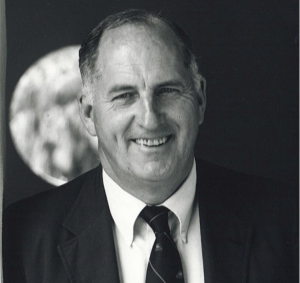General Qasem Soleimani was assassinated in Baghdad via a drone strike sanctioned by President Trump on Jan. 3. A man beloved by his Iranian countrymen and equally reviled by statesmen and leaders around the world, his death has raised many questions.
One thing is clear: Soleimani was dangerous and should have been killed.
His supporters may say that he was nothing more than a devout Iranian officer who was determined to support his nation by any means necessary, as any other patriot might do.
However, he unquestionably sanctioned terror and dedicated his life to a regime steeped in corruption as he conspired to sow the seeds of discord in a region already on the brink of chaos.
His campaign of arming and funding terrorist groups from Hamas to Hezbollah was a prominent source of unease and anguish for the previous two presidential administrations. He also placed an increasing number of American soldiers, diplomats, and officers in danger.
The Department of Defense assessed that, over the last two decades, he was responsible for hundreds of American deaths and wounding many more, in addition to killing thousands of innocent men, women, and children as a result of the terrorist activities of the groups he diligently supported.
His efforts were vile, unforgivable, and contributed to the thousands of lives lost to the aforementioned agents of terror.
Advocates for Soleimani’s assassination will point to the president’s assertion— generally supported by the Department of Defense and his National Security advisers—that there was an imminent threat. Article 51 of the United Nations’ charter reveals that this type of immedidate action is sanctioned when a nation is facing imminent danger.
However, the credibility of those assertions becomes more dubious by the day: the president’s Attorney General recently dismissed any claims of an imminent threat as irrelevant to the justification of the killing.
Critics argue that the president chose this action at this time only to further his own profile right before elections and to detract from impeachment. I will not argue against that.
I am not arguing that the president’s intentions were selfless, nor am I arguing that this was the proper time or method, but rather that the result of his actions was justified by Soleimani’s violent history.
But let’s get something straight: there is no doubt that Soleimani had plans in mind to place an increasing number of diplomats and military personnel in Iraq and put the surrounding region in danger.
As his previous campaigns have shown, if left unchecked, there was no telling how many more innocent lives were to be taken by his operations and those of the terrorist groups he bolstered. He stood for everything American soldiers in the Middle East have been fighting against in the over-decade-long war on terror. Therefore, he needed to be stopped.
I cannot pretend to know more than I do about the intricacies of this situation, what plans he did or did not have, how imminent they were, or the moral complications of assassinating one evil military official while failing to target others of equal or greater wickedness. But what I can say is that I fully believe this man should have been killed.
As for whether now was the appropriate time or whether the act was even sanctioned, I do not know and I cannot say for certain. It seems to be the wrong time, given the deaths of the 176 innocent passengers on the Ukrainian flight in Iran and the recent escalation of tension between all parties involved. But what time is ever “right?”
No one can predict with certainty the consequences of actions on the international stage. All we can do is hope that their actions are “just,” whatever that may mean in the ever-changing landscape of international relations.
For the time being, there will be no more of Soleimani’s attempts to subvert and harm Americans in the region. There will be less of a chance of his actions creating a conflict in which men, women, friends, family, and soldiers as young as Rollins students must mobilize to defend the United States from his heinous acts.
The world is much safer with one less man like him in it.











Comments are closed.